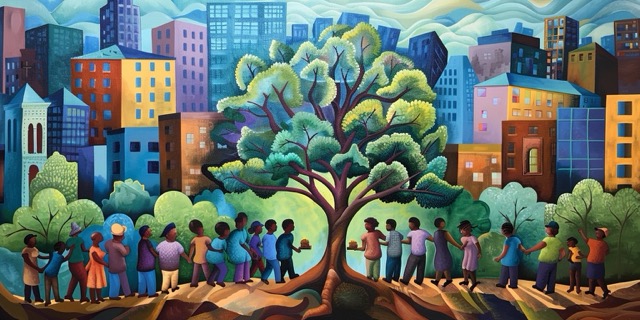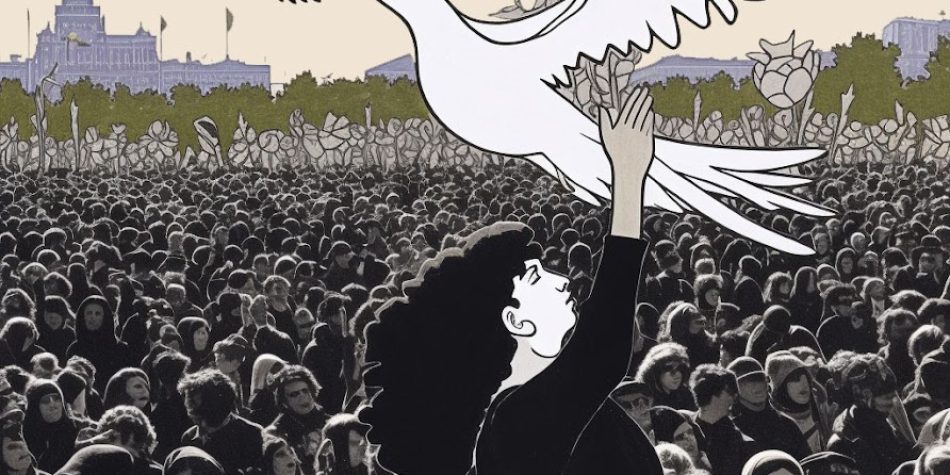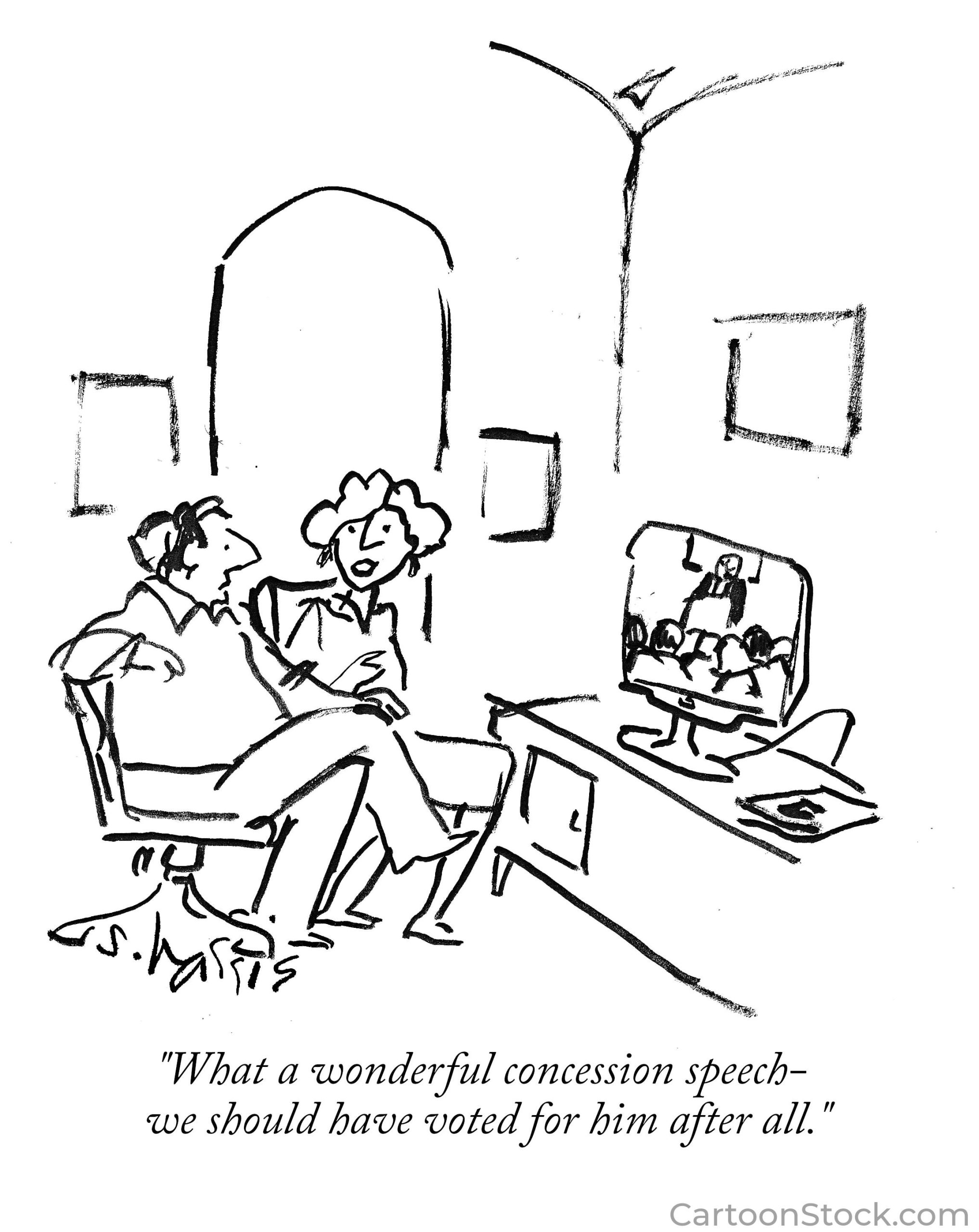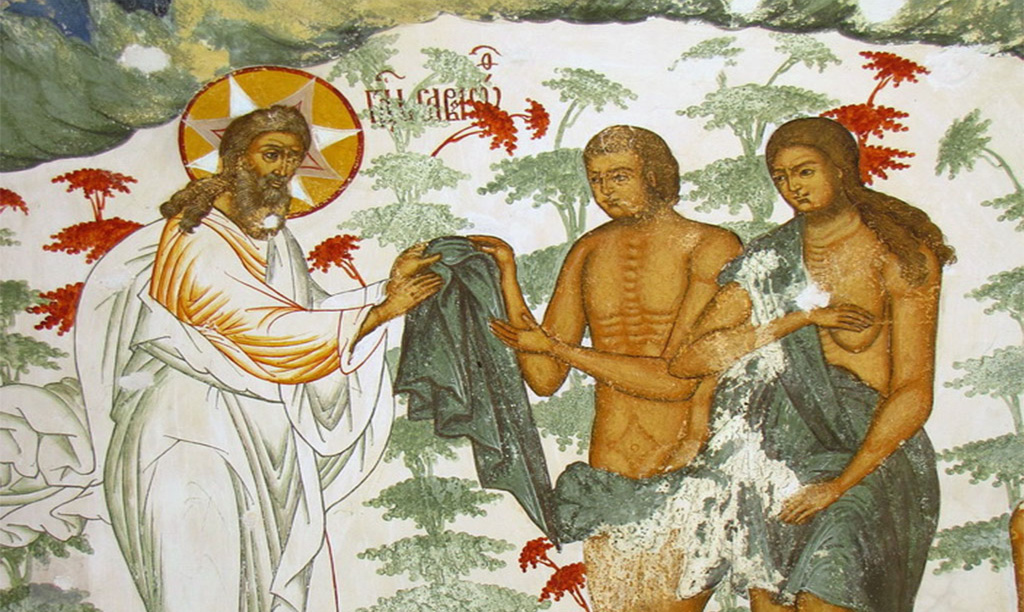Systemic or Soul Change,” and to “Renounce or Redeem.“
Every day, American media is filled with tit-for-tat warfare over woke. On one side, articles lament the intrusion of “woke” politics into elementary schools, children’s books, library reading hours, and churches. On the other side, articles bemoan the resistance to social justice progress as reflecting intransigent racism, sexism, and homophobia.
Do we really have to go to war over social justice?
Jacob spent the last few articles marching through competing visions of fundamental problems, core solutions, and what to do with those not on board with the popular answer to both. We wouldn’t blame anyone who came away thinking he was gearing up to encourage readers to join the wider culture war being fought in America over these same disagreements.
We already have fair and consistent answers to these challenging questions.
Interfaith Effort as a Model
Christopher recently added his exploration of how this new faith in social justice fits into the tapestry of world religions. The hope in identifying this belief system as religious, rather than religion and wokism as opposites, is not to heighten tension or prevent us from being able to work together—in fact, the hope is that it will produce the opposite result.
As a society, we already have systems and structures in place for understanding and navigating inevitable tensions between those of differing religious systems.
By framing this new movement as a religious faith, we are able to answer many of the questions that create social conflict today. Should the government be able to use its power to shut down institutions where this faith is practiced, such as has recently occurred in Florida? Should the symbols of this religion be displayed in public schools? Must other religions agree to the tenets of this faith in order to continue to function?
Each of these questions has prompted deep and sustained debate over human history. But once any belief system is framed as a religion, the good news is we already have fair and consistent answers to these challenging questions.
For instance, in a US context, the First Amendment’s free-exercise and establishment clauses function to provide both the protections and limits for any system of strong religious commitments.
And in the United States, we also have robust ecumenical and interfaith efforts. Yet today, because of the cultural power of this new religion, those who are not part of it are often wary of engaging in any joint work. Increasingly, it appears as if larger walls are established (on both sides of the conversation) in order to help protect identities and organizations.
By comparison, interfaith efforts don’t face these same challenges because religions come together as ideological equals, and there is much less risk of being subsumed. This framework frees adherents of different faiths, much like it may social justice advocates, to work together where there is a common cause.
Latter-day Saints certainly have plenty of common cause with those in this new faith. And this framework should hopefully allow us to better work together on those common goals.
Social Justice Implicit in Christianity?
What’s most increased our confidence that this is possible has been meeting many people deeply committed to social justice and witnessing the vibrancy of their faith in Christ and their love for His Church. And we’ve also been reminded by many of these same people about how often an emphasis on justice—even social justice—shows up in scripture. As McArthur Krishna summarizes:
In the Bible, we see God saying over and over again, “I love justice.” Throughout the Bible, God denounces greed and calls for the right use of power. God speaks out, cares for, and protects those whose life, labor, and dignity are abused. And God continuously calls for the right treatment of the widow, immigrant, and orphan.
God denounces greed.
Given the interplay of religion and social justice, all of this raises an important question: what is the distinction between a form of social justice that fortifies and enhances faith in Christ as opposed to one that corrodes and diminishes it?
What does stronger faith look like?
Before we even get to that question, it’s important to be clear about what is meant by “strengthened faith.” People, generally speaking, are not in agreement about this, including those among our own faith. This arises from the many different perspectives across American culture about what God wants, what is true, and what a healthy spiritual development looks like in terms of religion and social justice.
For our purposes, then, we’d like to operationalize something we would propose as consistent with prophetic teaching when it comes to the difference between a corroded faith and a vibrant one—reflected in this simple, 7-question survey:
1. When you sit in any worship meeting, do you get more preoccupied with the race or gender of speakers—so much so that you struggle to focus on what they are actually saying?
2. Do you more often than not feel uncomfortable joining in worship with the body of believers—be that in your local ward or in general conference as a whole?
3. Do you find yourself disregarding counsel from priesthood leaders—generally or locally—due to their race or gender?
4. Do you find yourself so frustrated about certain issues of inequity that it leaves you in a frustrated place about the institutional church?
5. Do you find yourself questioning whether the covenants and ordinances of the Church matter at all due to these other questions about inequity?
6. Have you started to entertain the possibility that a focus on repentance is, in fact, problematically shaming and guilt-provoking?
7. Do you ever wonder “if I can be a part of this church” as long as they teach X, or practice y, in relation to a specific minority issue?
If your answers to these seven questions are mostly or almost all “yes,” then by our definition, the strength of your faith has been hollowed out to some degree by a secular conception of social justice. No matter how much others might insist that you are, in fact, in a higher spiritual place—and with more enlightened views of God, divine love, and Zion building on earth—we’re among those who would humbly disagree.
And so would we imagine the prophets. You might disagree with all of us. But that’s why we’re trying to be clear by proposing the above criteria as a kind of metric for whether or not someone’s faith has been strengthened (or not)—and whether it has arrived at a corroded, hollowed out place (or not).
Imagining a faith-friendly social justice
Given that as a backdrop, here’s our best attempt to outline a set of social justice criteria that holds the potential to unite believers and bind hearts to sacred covenants rather than the reverse:
1. The priority of sin. Problematic inequities would be understood and presented as subsidiary and emblematic of sin rather than replacing or taking the place of sin. This hierarchy would need to be clean and clear. Caring about inequity, then, doesn’t need to mean we stop caring about sin … it simply means we are attentive to one particular kind of sin.
2. Roles aren’t a bad thing. Thoughtful space for purposive distinctions between roles and peoples would need to be allowed—rather than pretending that any and all differences are wrong-headed and evil. In this way, for instance, innate and eternal differences in gender roles would still be appreciated and valued.
3. The priority of repentance. Attention to systemic and institutional improvements would not eclipse the central attention to personal repentance. But neither would the individual improvements distract from larger collective changes needed either. We can walk and chew gum at the same time, and we can care about both of these too.
4. War no more. Contrasts or tensions between these various points of view would be explored with charity and generosity—putting aside the kinds of tensions with tradition that have characterized even religiously-themed liberationist strains. A faith-friendly social justice would not participate in the harsh and condemning rhetoric of the larger secular conversation at all.
5. Letting God lead the way. While acknowledging steps we can all take—individually and collectively—to move towards greater collective justice, this vision of social justice would emphasize the centrality of God and divine power in receiving the reconciliation and healing we ultimately seek. This foundation in divine faith would invite humility and encourage patience as we reach for a “more perfect union” among us.

Do you agree or disagree with these five criteria of religion and social justice? We would love to hear your additional thoughts.
By the way, similarities between these ideas and other proposals on the table are not accidental; for instance, notice the generosity and charity of Chloé Valdary’s antiracism program, the faith-infused Catholic-inspired “Dignity, Equality, and Solidarity,” and Brigham Young University’s own belonging initiatives aiming to foster “a community of belonging composed of students, faculty, and staff whose hearts are knit together in love.” It’s no coincidence that each of these comes from an explicitly faithful and Christian attempt to take social justice concerns seriously.
Do we really have to go to war over social justice?
By considering these new ideologies as a robust and unique religious movement with distinct philosophical foundations—we might then examine its different approaches to some of the most important questions we face. By recognizing it for what it is, then, we don’t have to be so afraid of it. Latter-day Saints have a long history of inter-faith efforts. Perhaps this will be one new horizon in that work.
Let’s keep talking about this. And let’s keep exploring together what more we can do to articulate and chart a faithful, peace-oriented social justice effort that can draw hearts together and unite us all with the Prince of Peace, who promises to bring justice to the whole earth.
















